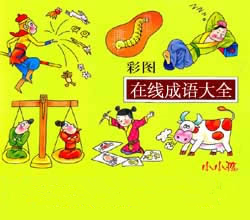My favourite festival_我最喜欢的节日英语作文200字
My favourite festival is Spring Festival. It’s in January or February. People in China celebrate it, and there are many things to do. We often celebrate Spring Festival by having a big dinner, visiting relatives and friends, getting some red packets and letting off fireworks. We often have a big dinner from the first day of Spring Festival to the last day. We often go to our relatives' home and have a big dinner and also we have a big dinner at home. We often have many things to talk and we are very happy. After dinner, we watch the TV programs of CCTV. There are many plays, and we often laugh at them. At midnight, we don’t go to bed but wait for the new day. We always let off fireworks. It’s very exciting and interesting! In Spring Festival, we always visit our relatives and friends too. We go shopping with them, and children are very excited to visit their relatives because they can get some red packets from their relatives. There is some money in it and children can use it to buy toys, books or some snacks.
Spring Festival is very interesting, isn't it?
我最喜欢的节日是春节,在1月或2月。在中国人们庆祝它,有很多事情要做。我们经常吃一顿大餐庆祝春节,拜访亲戚和朋友,得到一些红包,放一些烟花。从春节的第一天到最后一天我们经常会吃大餐。我们经常去亲戚的家里吃晚餐,我们在家里有一顿大餐。我们经常有许多事情要谈,我们非常开心。晚饭后,我们观看央视的电视节目。电视上有许多节目,我们经常因为节目而笑出声来。在午夜,我们不会睡觉而是等待新的一天。我们总是会放烟花。这是非常令人兴奋和有趣的事!在春节,我们总是回去拜访我们的亲戚朋友。我们和他们去购物,孩子们对于走亲探友感到很兴奋,因为他们可以从亲戚那里得到一些红包。红包里面有一些钱,孩子们可以用它来买玩具,书籍或一些零食。
春节很有趣,不是吗?
相关作文: 我的周末生活、春天像小姑娘、月季花、去踢足球、一次阑尾的手术、我的学校我的家、动作描写例文、生活中的小镜头作文200字、小草对不起、讨厌的蚊子热门作文成语素材
- 哀感顽艳 原意是指内容凄切,文辞华丽,使愚笨和聪慧的人同样受感动。后多用来指艳情的小说、戏曲、电影中的感人情节。
- 匪夷所思 匪:不是;夷:平常。指言谈行动离奇古怪,不是一般人根据常情所能想象的。
- 分我杯羹 羹:肉汁。楚、汉相争时,刘邦答项羽的话。比喻从别人那里分享一分利益。
- 风不鸣条 和风轻拂,树枝不发出声响。比喻社会安定。
- 匪夷匪惠 夷:殷末周初的伯夷;惠:春秋时鲁国的柳下惠。既不是伯夷,又不是柳下惠;不具备这两位贤人的品德。形容才德不高而又驾驭的人。
- 聱牙佶屈 聱牙:不顺口;佶屈:曲折。指文章读起来不顺口。
- 安分知足 安于本分,对自己所得到的待遇知道满足。
- 飞沙走砾 沙:沙土;砾:小石块。沙土飞扬,小石块滚动。形容风势很猛。
- 百鸟朝凤 朝:朝见;凤:凤凰,古代传说中的鸟王。旧时喻指君主圣明而天下依附,后也比喻德高望重者众望所归。
- 背井离乡 离开家乡到外地。
- 分毫不爽 比喻没有丝毫差错。
- 挨肩擦背 形容人多拥挤。
- 禀性难移 本性难以改变。
- 博硕肥腯 博硕:形状大;腯:音‘途’,肥壮。指六畜肥壮。
- 不辞劳苦 辞:推托。劳苦:劳累辛苦。不逃避劳累辛苦。形容人不怕吃苦,毅力强。
